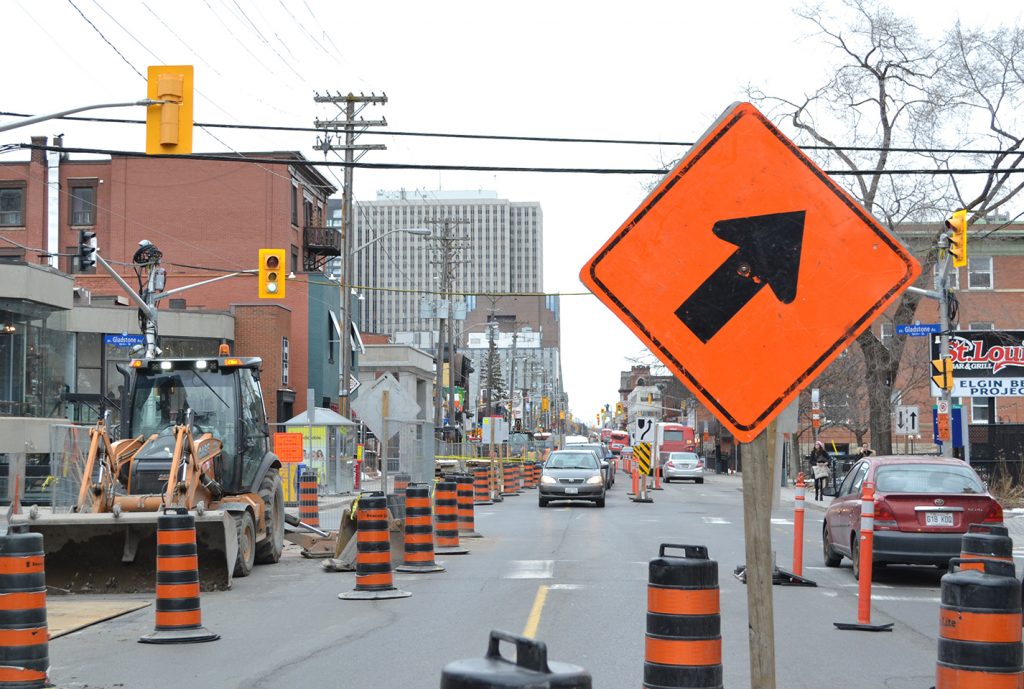Editorial: City should find way to ease Elgin’s pain
By Anita Brown, Editor-in-Chief
One of Ottawa’s busiest bar and restaurant strips is in for two long years of road closures and disruptive reconstruction, and local businesses are understandably worried.
Elgin Street, bustling with dozens of niche coffee shops, trendy bars and charming boutiques began its major makeover this month. Bell Canada and Hydro Ottawa started work on the street’s outdated infrastructure on March 12, and are expected to wrap up those upgrades by fall.
But this work is just the precursor to the extensive Elgin Street revamp to come.
Beginning sometime in early 2019, Elgin will be closed entirely to traffic between Gloucester and Isabella streets. Although city officials originally predicted the project would be completed before the end of 2019, they now say it is likely to extend into 2020.
The rebuild is all about making Elgin a more inviting place for pedestrians and cyclists.
Some businesses are concerned that the many months they’ll spend in the midst a construction site could be devastating.
Many store owners have said they’re upset about a lack of communication from the city regarding the timing and scale of the construction work. What they initially thought would be a year-long closure has turned into a much more daunting two-year process, and some merchants say they found out more about what was happening from local news stories than from municipal officials.
Somerset Coun. Catherine McKenney, who supports the vision behind the Elgin Street revamp, has acknowledged the city must work harder to communicate with business owners and residents in the area.
Renovation is certainly necessary to keep the city modern and thriving, and construction is always sure to cause some sort of inconvenience. The Elgin Street rehabilitation is a necessary evil, and most business owners recognize that.
But the city shouldn’t ignore the enormous impact this project will have on the businesses that run along it.
It’s up to the city officials to find ways to preserve and protect the commercial life of the street if they want it to continue flourishing after the renewal work is complete.
The new public art, increased lighting, and wider sidewalks being promised in the rebuild will mean very little if businesses along Elgin are boarded up two years from now.
Although the repairs are necessary and some suffering is inevitable, some sort of contingency plan is needed to prevent the street from being lined with empty store fronts.
Businesses will, no doubt, feel the effects of a decrease in customers due to the construction. Small businesses, already competing with big-box retailers and chain restaurants across the city, should not have to shoulder unbearable costs connected to the Elgin revitalization.
The City of Ottawa offers tax mitigation programs is such situations, citing “repairs or renovations prevent(ing) the normal use of the land for at least three months” as one of the seven reasons for a potential cancellation, reduction or refund of property taxes.
This should happen. A significant tax break could relieve some of the hardship businesses are expecting to experience.
In the end, it’s up to the city to take whatever measures are necessary to ensure that the construction on the street doesn’t ultimately ruin it.

